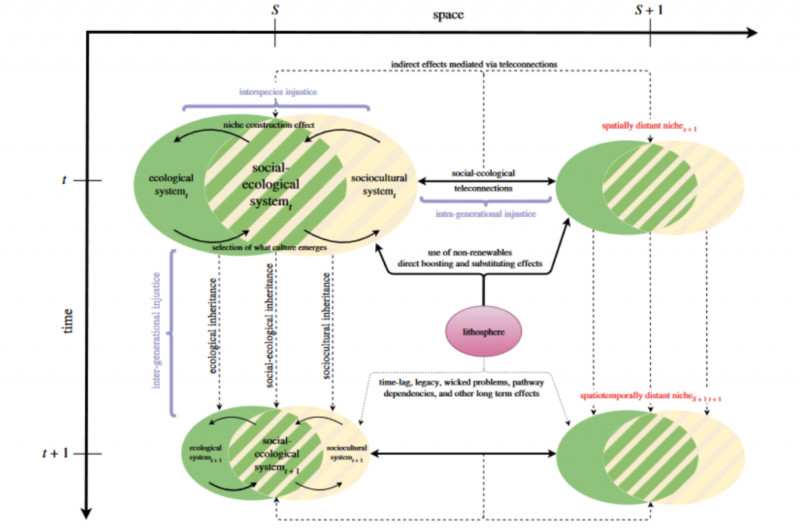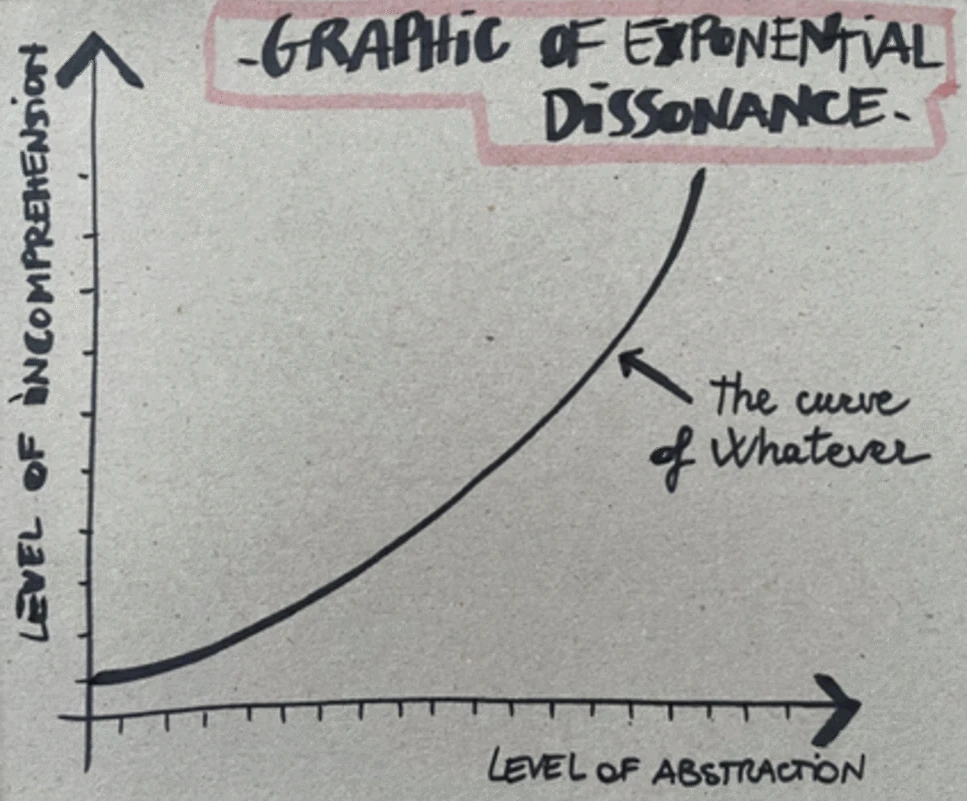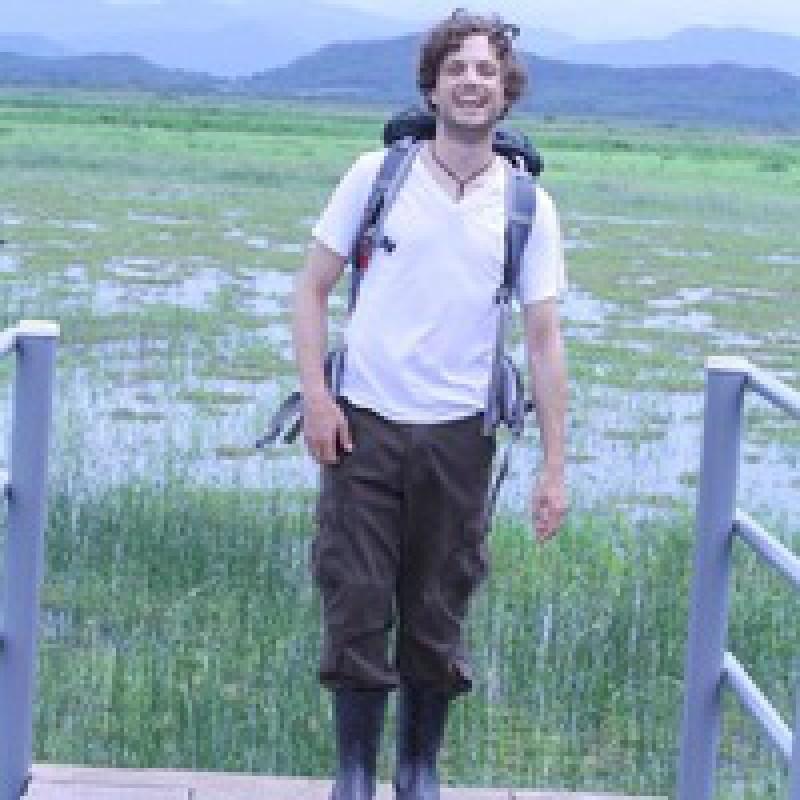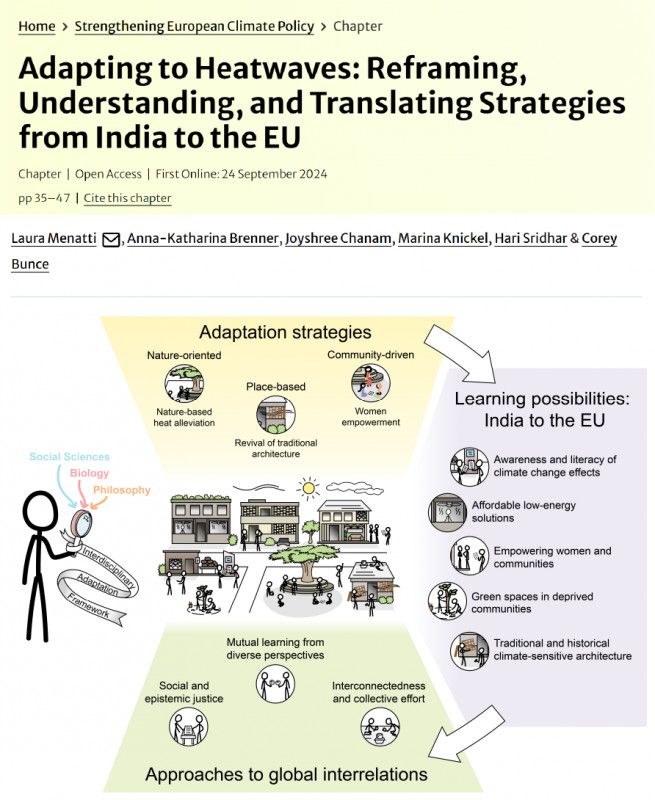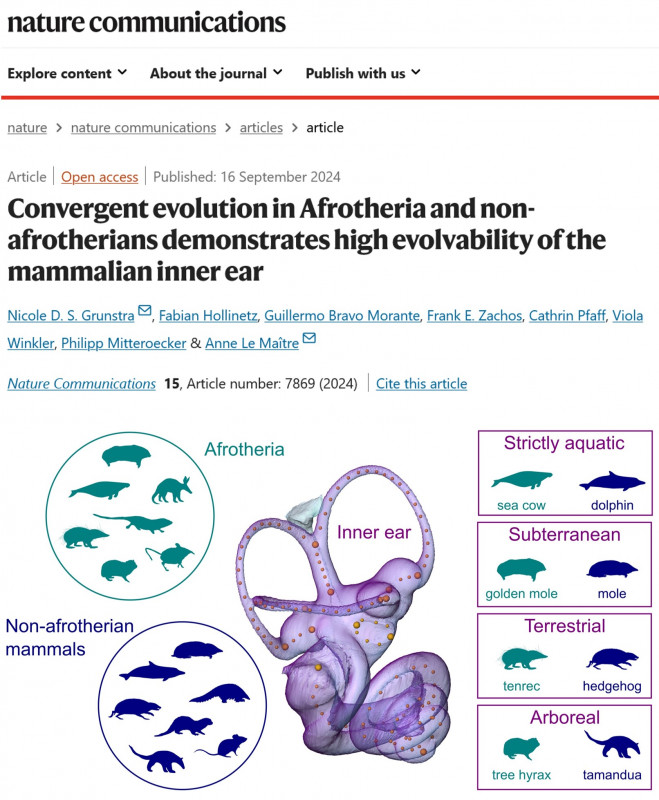News
2022-02-15
New paper on imperialist appropriation in the world economy
Co-authored by KLI fellow Christian Dorninger, their new paper shows that rich countries rely on a large net appropriation of resources from the global South.
2023-11-20
New paper: A new concept for social-ecological niche construction and its sustainability
A new article co-authored by Guido Caniglia combines niche construction theory with social-ecological systems science to better understand the relationships between sociocultural and environmental co-evolutionary processes that have led to the current planetary crisis.
2024-02-09
New Paper: Association of personality traits and socio-environmental factors with COVID-19 pandemic-related conspiratorial thinking in the D-A-CH region
What has Conspiracy Theories got to do with individual personality traits and socio-environmental factors?? Quite a lot actually, according to a new multi-author paper including Guido Caniglia, published in SN Social Sciences. (Click on title to read more…)
2023-06-22
New paper: How hypotheses evolved into facts - through mis-citation
New paper by Hari Sridhar and Priti Bangal revisits the ‘nuclear species’ concept, finding frequent mis-citations of core ideas.
2024-02-22
New Paper: Inter- and transdisciplinary reasoning for action: the case of an arts–sciences–humanities intervention on climate change
How do participants in arts–science collaborations reason together to overcome disciplinary boundaries and to co-create interventions?
This article by Luana Poliseli and Guido Caniglia chronicles how inter- and transdisciplinary reasoning unfolded in such a collaborative project involving experts from the natural sciences, humanities, and the arts. It appears that embracing of differences rather than seeking consensus among diverse perspectives allows inter- and transdisciplinary reasoning to help navigate unpredictable situations effectively by capitalising on and leveraging differences.
(Click on the title to read a summary article of this new paper!)
2023-01-24
New paper: Practical wisdom can inform the practice of sustainability researchers
New paper in Nature Sustainability by Caniglia et al. outlines a new role for practical wisdom and virtue ethics in knowledge co-production for transformative change.
2023-06-02
New paper: Queer theory for transdisciplinary sustainability research
New paper by Caniglia and Vogel outlines how queer theory can help transdisciplinary sustainability researchers to embrace transgressive orientations.
2023-06-04
New Paper: Social distancing during Covid-19 lockdown and connectedness
Laura Menatti and Mariagrazia Ranzini 's new paper explores the effects of Covid lockdowns on relationships and connectedness, with important implications for future health policy.
2024-01-05
New paper: Social phenomena as a challenge to the scaling-up problem
KLI fellow Enrico Petracca questions the problem’s main assumption: That cognitive phenomena can be categorized based on their inherent complexity or representation-hunger.
2024-04-22
New Paper: The Cliff Edge Model of the Evolution of Schizophrenia
In their new paper published in Neuroscience & Behavioral Reviews, Philipp Mitteroecker and Giuseppe P. Merola present new theory for the puzzle of the evolution of Schizophrenia. Schizophrenia persist in human populations despite its negative effects on a person’s evolutionary fitness. They develop a mathematical model, the cliff-edge model of the evolution of schizophrenia, based on the idea that schizophrenia is the extreme manifestation of a trait that, within a normal range of variation, confers an evolutionary advantage. (Click on title to read more..)
2024-04-16
New paper: Trust and Bitcoins: Can technology replace interpersonal relationships?
Cryptocurrencies, such as Bitcoins, are becoming more and more prevalent in our lexicon today, the broad common understanding being that it is a financial system that is based on technology. However, for most of us, there is still a lot more to know and understand how cryptocurrencies work, and how such a technology can affect social relationships. Enrico Petracca, along with Shaun Gallagher, in their new paper, apply the philosophy of mind concept of the "socially extended mind" to the case of cryptocurrencies like Bitcoin. They see cryptocurrencies as institutions that perform some cognitive work (e.g., transaction verification) and identify trust as an unavoidable and desirable condition for performing such cognitive work. (Click on title to continue…)
2024-01-08
New paper: Trust in times of crises
A new study, co-authored by Guido Caniglia, highlights optimism and complexity thinking as key factors to foster interpersonal trust during times of crises.
2024-01-22
New Paper: What drives densification and sprawl in cities? A spatially explicit assessment for Vienna, between 1984 and 2018
Led by fresh KLI alumna Anna-Katharina Brenner, this paper explores the long-lasting impact of settlement arrangements in cities on sustainability, and emphasizes the importance of understanding the drivers that change settlement patterns.
2024-12-02
New publication (Book Chapter): The socio-cultural acceleration of evolution
Isabella Sarto-Jackson contributed a chapter titled, "Die sozio-kulturelle Beschleunigung der Evolution (translated as The Socio-Cultural Acceleration of Evolution)" to the book Wechselwirkungen und Zufall in der Evolution (translated as Interactions and Chance in Evolution), edited by Markus Knoflacher (Club of Vienna). Each chapter in this volume examines characteristics of evolutionary processes that continue to challenge human society from a unique perspective, and also provides a compelling reflection that contradicts the dominant ideas of humans' complete control and predictability over all earthly processes—concepts which are increasingly encapsulated in the term "Anthropocene." In her chapter, Isabella explores the key factors influencing human evolution, and their interactions, highlighting how they have shaped the unique evolutionary trajectory of humans.(Click on title to read more.)
2024-06-21
New Publication (invited book chapter): A double-edged metaphor: Simon and the scissors of bounded rationality. In Elgar Companion to Herbert Simon (pp. 131-147). Edward Elgar Publishing.
KLI Fellow Enrico Petracca contributed a chapter in a book project dedicated to famous economist and cognitive scientist of the 20th century, Herbert H. Simon. Edited by Gerd Gigerenzer, (the late) Shabnam Mousavi , and Riccardo Viale, the book ‘Elgar Companion to Herbert Simon’ is now out, and with Enrico’s contributed chapter titled, ‘A double-edged metaphor: Simon and the scissors of bounded rationality’. (Click on title to read on.)
2024-09-26
New Publication: Adapting to Heatwaves: Reframing, Understanding, and Translating Strategies from India to the EU
A team of KLI Fellows, co-led by Laura Menatti and Corey Bunce, and including Anna-Katharina Brenner, Joyshree Chanam, Marina Knickel and Hari Sridhar, contributed a book chapter titled, "Adapting to Heatwaves: Reframing, Understanding, and Translating Strategies from India to the EU" to the book "Strengthening European Climate Policy" produced by the European SSH CENTRE. This book chapter is the main outcome of an interdisciplinary project started in 2023, for which former KLI scientific director Guido Caniglia acted as facilitator. This book chapter proposes an innovative framework for understanding adaptation to climate change through an interdisciplinary approach. (Click on title to continue...)
2024-12-05
New publication: Aesthesis, noesis, or both? Enactivism meets representationalism in aesthetics
In a recent paper, published in Phenomenology and the Cognitive Sciences, Onerva Kiianlinna (KLI & University of Helsinki) argues that the enactivist and representationalist frameworks can and should be brought together when talking about aesthetic judging. (Click on title to read more.)
2024-08-26
New Publication: Connecting and integrating cooperation within and between species
In their recent published in Philosophical Transactions B, KLI Fellow Hari Sridhar, along with Judith L. Bronstein (University of Arizona) delve into the connexion between two different levels of cooperation, viz., within species cooperation and between-species cooperation. We are also happy to share that Hari's study system (mixed-species bird flocks) made it to the cover of this issue!
2024-09-26
New publication: Convergent evolution in Afrotheria and non-afrotherians demonstrates high evolvability of the mammalian inner ear
A recent paper in Nature Communications, co-led by Nicole Gunstra (University of Vienna), Anne Le Maître (KLI) and Philipp Mitteröcker (KLI and University of Vienna) revealed that animals with very little genetic relatedness, Afrotheria and their non-afrotherian counterparts, inhabiting similar habitats or having similar ecologies, showed high similarity in their inner ears—a clear case of convergent adaptive evolution, demonstrating high evolvability of the inner ear in mammals. The authors explain that this high evolvability is facilitated by the anatomical, genetic and developmental complexity of the ear, which bestows upon it a higher developmental modularity, and consequently leading to the high diversity observed in ears of mammals as compared to other vertebrates.


